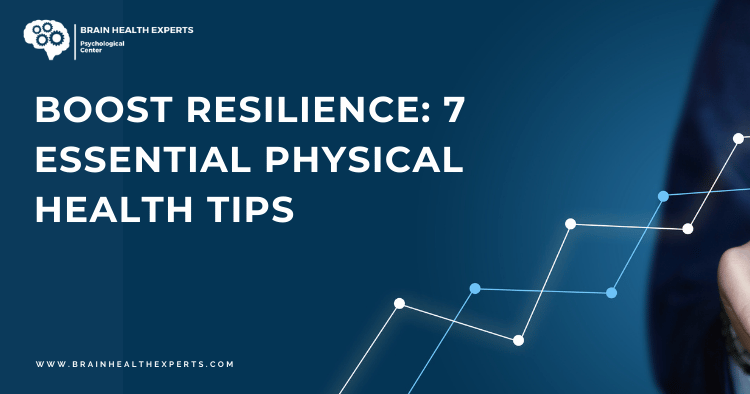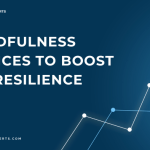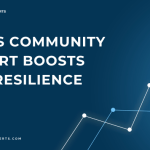Table of Contents
- Introduction
- 1. Prioritize Regular Exercise
- 2. Maintain a Balanced Diet
- 3. Stay Hydrated
- 4. Get Quality Sleep
- 5. Manage Stress Effectively
- 6. Foster Social Connections
- 7. Schedule Regular Health Check-ups
- Conclusion
- FAQs
Introduction
In today’s fast-paced world, resilience is more crucial than ever. It’s the ability to bounce back from setbacks, adapt to change, and keep moving forward. One of the foundational aspects of building resilience is physical health. Our bodies are intricately connected to our mental and emotional well-being. This article will explore seven essential physical health tips that can help you boost your resilience, making it easier to face life’s challenges.
1. Prioritize Regular Exercise
Engaging in regular physical activity is one of the most effective ways to enhance your resilience. Exercise not only strengthens your muscles and cardiovascular system but also releases endorphins, the body’s natural mood lifters.
Benefits:
- Improves Mood: A study published in the American Journal of Preventive Medicine found that regular exercise can reduce feelings of depression and anxiety. Read more here.
- Boosts Energy Levels: Physical activity increases oxygen flow and nutrient delivery to your tissues, helping your body function more efficiently.
Tips:
- Aim for at least 150 minutes of moderate aerobic activity or 75 minutes of vigorous activity each week.
- Incorporate activities you enjoy, such as dancing, hiking, or swimming, to make exercise feel less like a chore.
Consider exploring 10 effective strategies for building resilience in mental health for further insights.
2. Maintain a Balanced Diet
Nutrition plays a vital role in how resilient you can be. A well-balanced diet provides the essential nutrients your body needs to function optimally and fend off stress.
Key Components:
| Nutrient | Sources | Benefits |
|---|---|---|
| Protein | Lean meats, beans, nuts | Supports muscle repair and growth |
| Omega-3 Fatty Acids | Fish, flaxseeds, walnuts | Reduces inflammation and improves mood |
| Antioxidants | Fruits, vegetables, whole grains | Protects against oxidative stress |
Tips:
- Focus on whole foods and limit processed foods high in sugar and unhealthy fats.
- Consider meal prepping to ensure you have nutritious options readily available.
For more information on how nutrition influences mental health, check out 10 powerful affirmations to boost mental health today.
3. Stay Hydrated
Water is essential for every system in your body, including your brain. Dehydration can lead to fatigue, reduced concentration, and increased stress levels.
Benefits:
- Enhances Cognitive Function: Research shows that even mild dehydration can impact your mood and cognitive performance. Learn more at the Mayo Clinic.
- Aids Digestive Health: Staying hydrated helps maintain the balance of bodily fluids, which is crucial for digestion.
Tips:
- Aim to drink at least 8 glasses (64 ounces) of water per day, adjusting for activity level and climate.
- Carry a reusable water bottle to remind yourself to drink throughout the day.
For techniques to manage stress effectively, refer to 10 proven stress management techniques for daily relief.
4. Get Quality Sleep
Sleep is often overlooked but is a cornerstone of physical health and resilience. Quality sleep helps your body recover and supports emotional and cognitive health.
Benefits:
- Improves Memory and Learning: Sleep plays a vital role in memory consolidation. A lack of sleep can impair learning and problem-solving skills.
- Boosts Immune Function: Adequate sleep helps your immune system fight off illnesses.
Tips:
- Aim for 7-9 hours of quality sleep each night.
- Create a relaxing bedtime routine, and limit screen time before bed to improve sleep quality.
To explore ways to enhance your resilience through sleep, consider reading 10 ways to boost resilience for better emotional well-being.
5. Manage Stress Effectively
Stress is a normal part of life, but chronic stress can take a toll on your physical and mental health. Learning to manage stress effectively can significantly boost your resilience.
Techniques:
- Mindfulness Meditation: Practicing mindfulness can help you stay present and reduce anxiety. Explore resources here.
- Deep Breathing Exercises: Simple breathing techniques can help calm your mind and body.
Tips:
- Schedule regular “me time” to engage in activities that relax you, whether it’s a hobby, reading, or simply enjoying nature.
For more stress management techniques, visit 10 effective stress reduction techniques for students.
6. Foster Social Connections
Strong social connections can provide emotional support, reduce stress, and enhance resilience. Surrounding yourself with a supportive network can make difficult situations more manageable.
Benefits:
- Increased Happiness: Studies show that individuals with strong relationships tend to be happier and healthier.
- Better Coping Mechanisms: Friends and family can provide different perspectives and advice during tough times.
Tips:
- Make an effort to connect with friends and family regularly.
- Join local clubs or community groups to meet new people and expand your social circle.
For insights on how positive thinking boosts relationships, check out 10 ways positive thinking transforms your relationships.
7. Schedule Regular Health Check-ups
Preventive healthcare is crucial for maintaining physical health and resilience. Regular check-ups can help identify potential health issues before they become serious.
Importance:
- Early Detection: Regular screenings can catch health problems early when they are more manageable.
- Personalized Health Advice: Healthcare providers can offer tailored advice based on your health history and lifestyle.
Tips:
- Make a list of any health concerns before your appointment.
- Follow recommended screening guidelines based on your age, gender, and medical history.
To enhance your understanding of managing health for resilience, consider 10 essential techniques to boost your resilience today.
Conclusion
Building resilience takes time and effort, but prioritizing your physical health can make a significant difference. By incorporating these seven essential tips into your daily routine, you can enhance your ability to cope with stress, adapt to challenges, and thrive in your personal and professional life. Remember, taking care of your body is the first step in nurturing your mind and spirit.
FAQs
1. How long does it take to see improvements in resilience?
Improvement is subjective and varies for everyone. Some people may notice changes within a few weeks, while for others, it may take months of consistent effort.
2. Can I build resilience without physical exercise?
While physical exercise is a powerful tool for resilience, it’s not the only way. Techniques like mindfulness, social support, and stress management also play critical roles.
3. What if I don’t have time for all these tips?
Start small! Choose one or two tips to incorporate into your daily routine, and gradually add more as you feel comfortable.
4. Are there any apps that can help with these tips?
Yes! There are several apps for exercise (like MyFitnessPal), meditation (like Headspace), and hydration (like WaterMinder) that can support you in your resilience journey.
By embracing these strategies, you can foster resilience in your life and thrive amidst challenges. Remember, every small step counts!





